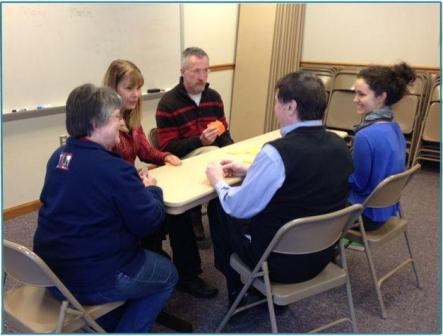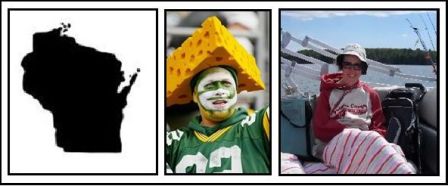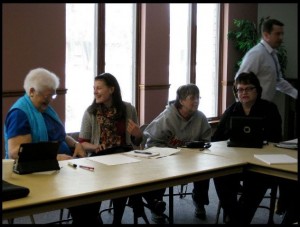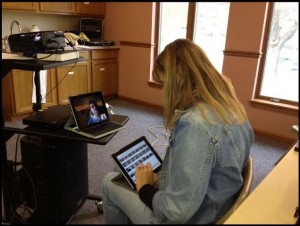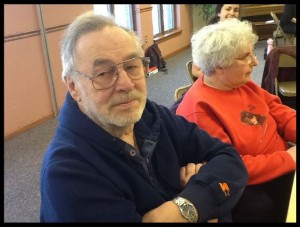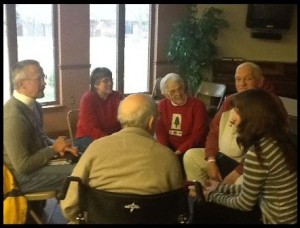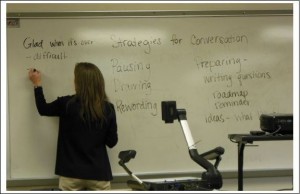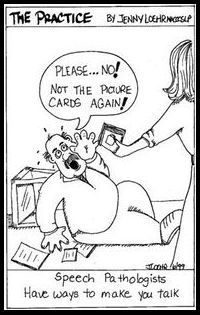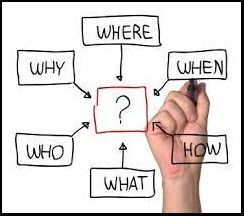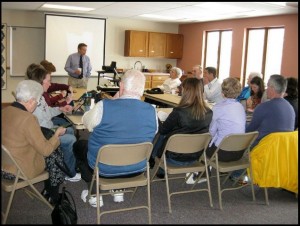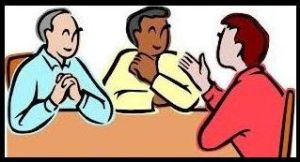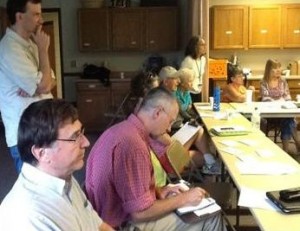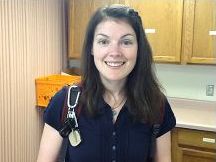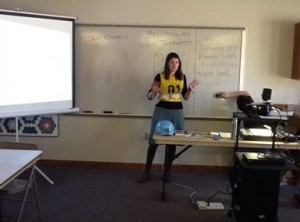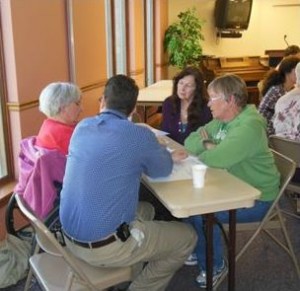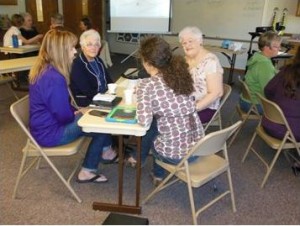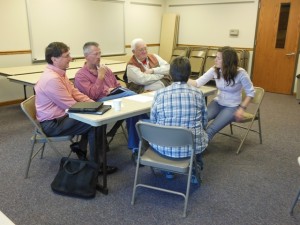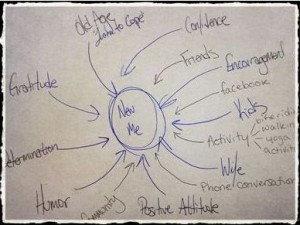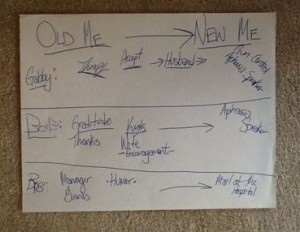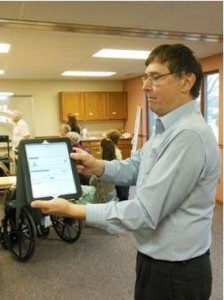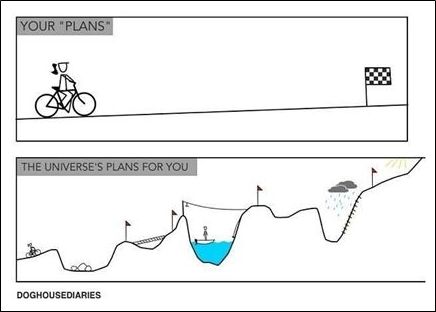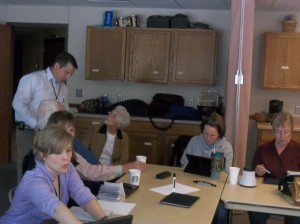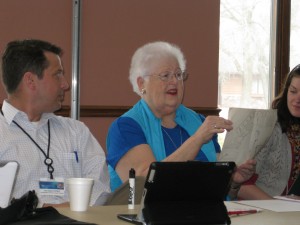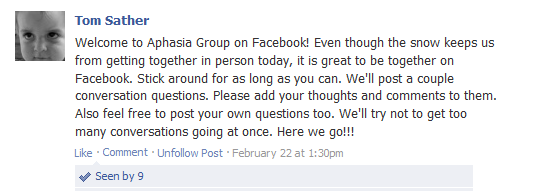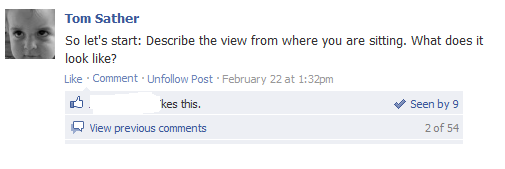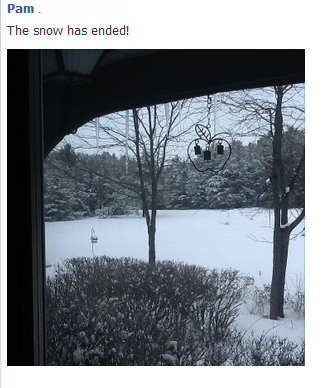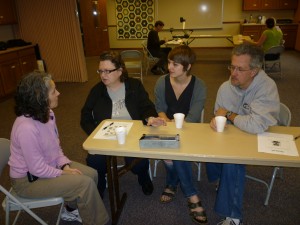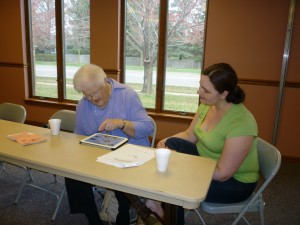1-2014 Practice, Practice, Practice
The CVAG is following a year long plan to explore ways to practice communication. Practice is the key to mastering important skills. Our aphasia group sessions are dedicated to helping group members learn about current activities for language/communication practice. We describe practice activities, steps involved with practice, and the benefit of practice. We are following the principle that practice should be meaningful and motivating. We also talk about intensity and everyday use of practice.
Conversation practice was fun and dynamic! We have enjoyed practicing conversation in pairs, small groups and over FaceTime.
We have now begun practicing requests and comments while playing a card game. The communication within this Language Action Game isn’t as wide ranging as during conversation. Members are required to limit their communication to particular phrases, and to practice these phrases repetitively.
This game is played like “Go Fish,” where individuals take turns asking another for a particular card. “ [name] do you have the [ object]” If the other player has the card requested, they respond, “yes [name] I do.” Or if not “No,[name], I do not have the [ object ] Go Fish”. Barriers on the table make it easier for group members to hold or arrange their cards on the table.
We designed our own version of the game, following Christine Virion’s excellent ideas listed in “Go Aphasia” (2008). She suggested increasing the difficulty of required phrases as individuals mastered simpler steps. Our CVAG volunteers were very creative in building a three level game using photographs of local people, places and activities.
Group members say they enjoy the predictability of this kind of practice. Members feel challenged by the increasing difficulty of the game. They have mentioned improved “focus” during the activity and improved accuracy in saying member’s names through this repetitive practice.

